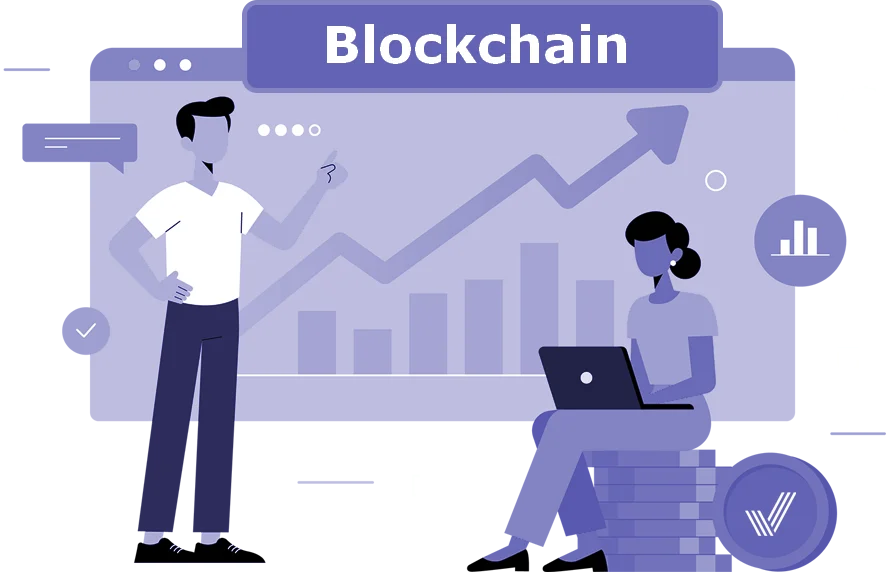
Token or your blockchain – what is better for a crypto project?Token or your blockchain – what is better for a crypto project?Today, in decentralized finance, we can observe two main approaches to building a project architecture.: some developers rely on their own strength, launching your own blockchains, others issue tokens on large blockchains, such as Ethereum or Waves, without having to deploy a separate infrastructure for your project. But which of these approaches is better?
To start, let's take a look at the benefits of using third party blockchain by companies:
- Low costs. Actually, this is the main advantage of using the token, which is often decisive. If the company does not have the resources to do it, to develop your, separate blockchain, deploy and maintain its infrastructure - then the token becomes the only possible solution.
- Simplicity. Using a token removes the need to develop a blockchain from scratch. That is, there is no need to hire expensive blockchain developers., and the risk of making a critical error is minimized - a difficult development task, testing and maintenance of the blockchain is decided by others.
- Simplifying audience engagement. Convincing people to try the service on a blockchain they already know, albeit with the help of a new token, much easier, how to convince them to switch to a completely new and unfamiliar platform. For platforms, who are just starting to work and have not yet earned a name for themselves, it can also be critical.
- Facilitating audience access. It is very easy to exchange the base currency of the blockchain for any token in this blockchain., usually, possibly right in the wallet, but in the case of a separate blockchain, everything is much more complicated - you have to rely on exchanges (where else do you need to get listing) or build exchange gateways, which is also costly.
But you have to pay for everything. Using tokens as the basis for building a blockchain platform is fraught with serious problems.
- Complete dependence on the "parent" blockchain. If something happens to the underlying blockchain, this will hit all tokens, based on it. Moreover, the risks can be of a technical nature, and market (the collapse of the base cryptocurrency almost guarantees the collapse of all tokens) or regulatory - we have all seen high-profile stories of confrontation between crypto projects and states.
- Overloading the "parent blockchain". The abundance of tokens from different services and the need to exchange between them leads to a sharp increase in the load on the network. The ever-congested Ethereum is a great example.. And this overload, along with an increase in commissions and a slowdown in the passage of transactions, hurts all projects, using tokens based on it.
- Limited development opportunities. If ordinary users, by and large, does not matter, use a token or stand-alone cryptocurrency, then institutional players are very wary of projects, token-based. A plus, the lack of its own blockchain significantly limits the platform's capabilities for integrating new services.
Wherein, to use your blockchain, the list of advantages and disadvantages will be reversed. The approaches are radically different, and the choice of the most suitable is purely individual for each specific case. but, Who said, that they are mutually exclusive?
The scenario is quite possible, when a project starts using a third-party blockchain and a token based on it, and then, having accumulated a user base and financial resources, goes to its own separate blockchain.
This is the path that the Russian project is taking - it began as an investment platform, why the token on the Waves blockchain was perfect. However, for the further development of the ecosystem, within which a whole galaxy of services is being developed, from the marketplace to the blockchain lottery, the capabilities of the Waves blockchain are no longer enough. That is why the team is working on their own blockchain, using the start impulse, which the project received thanks to Waves.
The history of the cryptoindustry knows many examples, when the transition to your own blockchain simply gave a tremendous acceleration to the development and popularization of crypto projects. For example, BNB coin, which started as an ERC-20 token and subsequently switched to its own blockchain. For 3 year the price of BNB has increased since 4 cents to 147 Dollars, which equals 310040.1% Certainly, the reason for the growth of BNB is not only in the launch of its own blockchain, but also in the growing popularity of the Binance exchange itself. Or, another example - cryptocurrency TRON, which was also launched as an ERC-20 token with a price $0,0018 in 2017 year and increased in price in 2018 year before 23 Cents, which accounted for growth in 2491.6%. The list goes on and on.
The fact remains. Development and transition to your own blockchain is an important stage in the development of a crypto startup.. This step gives the necessary flexibility and versatility to the development of new products.. It is these factors that make it possible to get the best of all possible approaches to solving any problem and should become the key principle of the updated Global ecosystem.. The transition to your own blockchain will significantly expand the existing functionality and add all the software "chips" of modern blockchains: parachains, sadcheyny, dApps, smart contracts, DeFi. All this will cease to seem “distant” and incomprehensible, and will become an integral part of the ecosystem and help take its rightful place in the global crypto industry.
